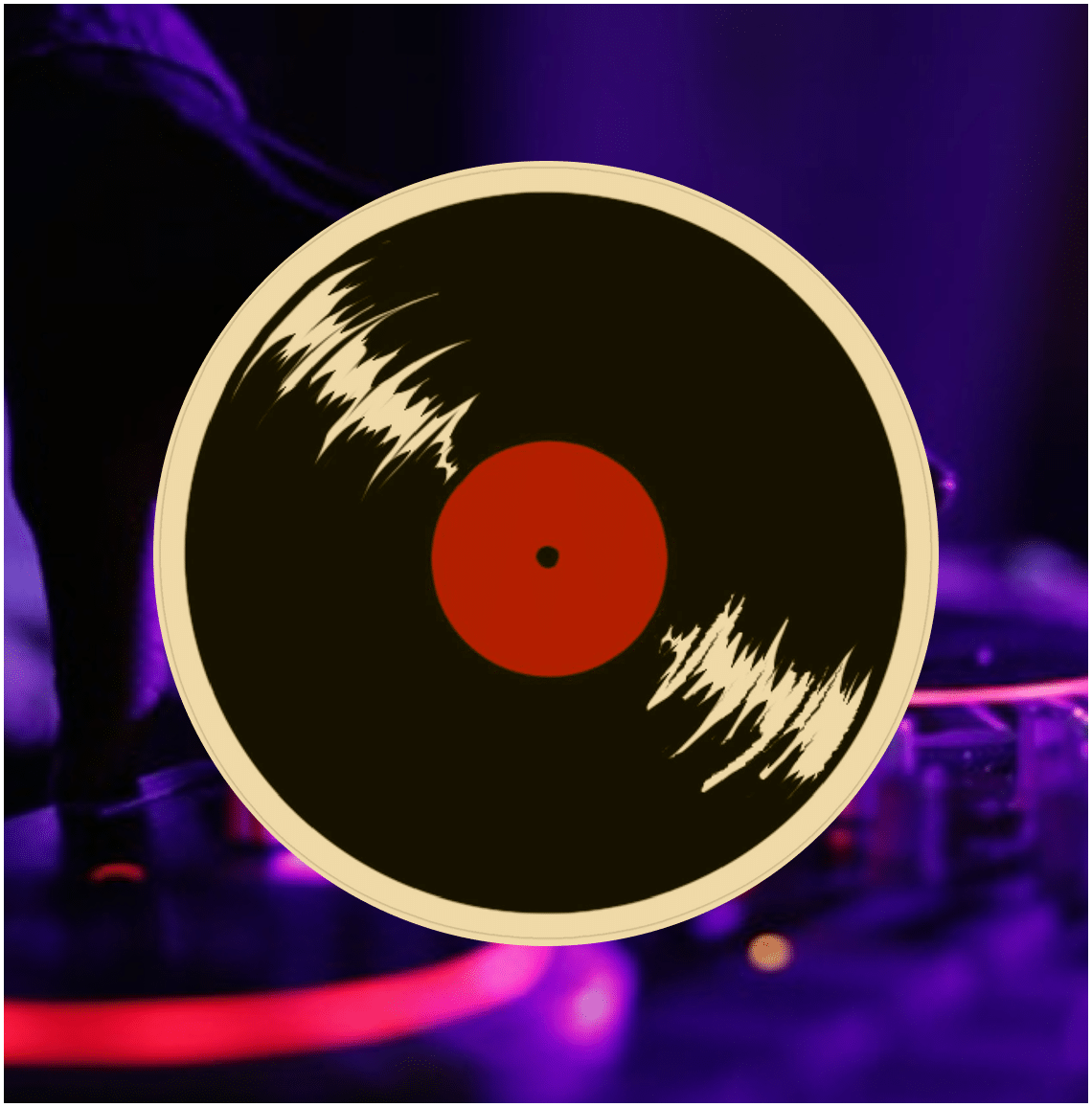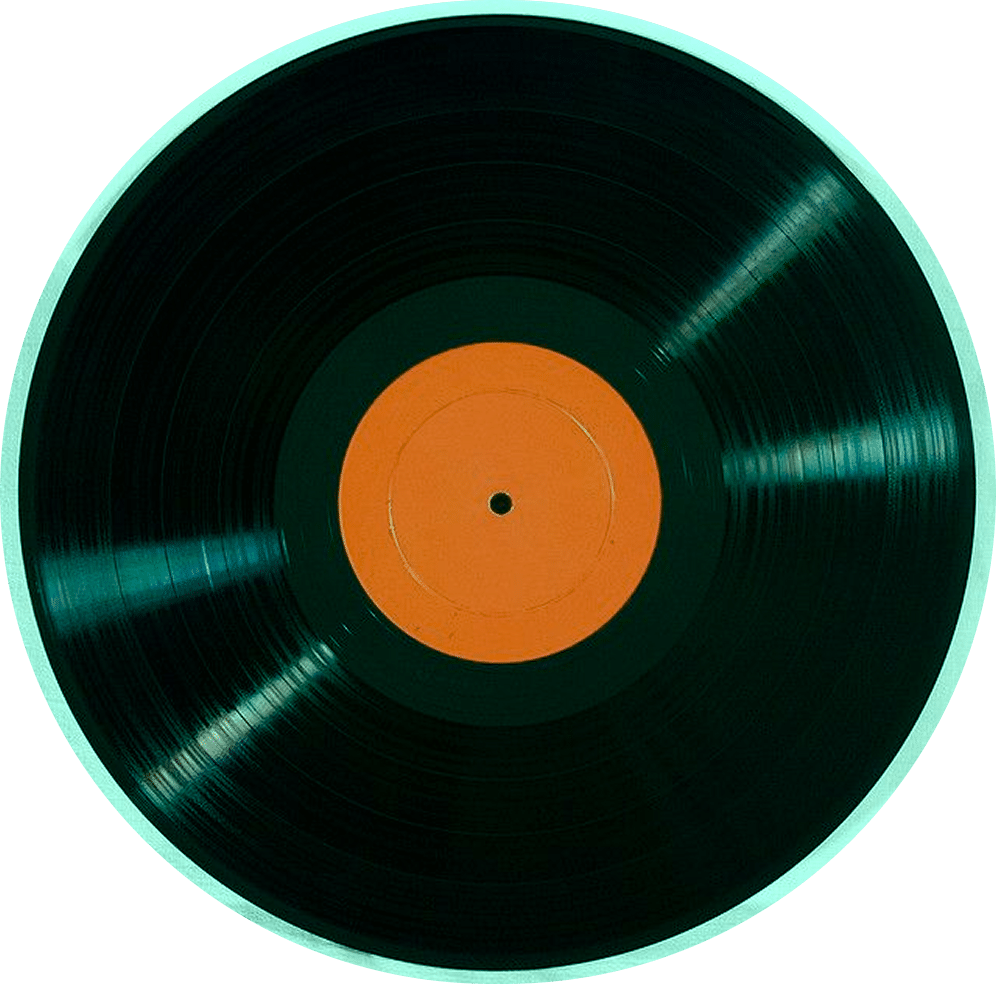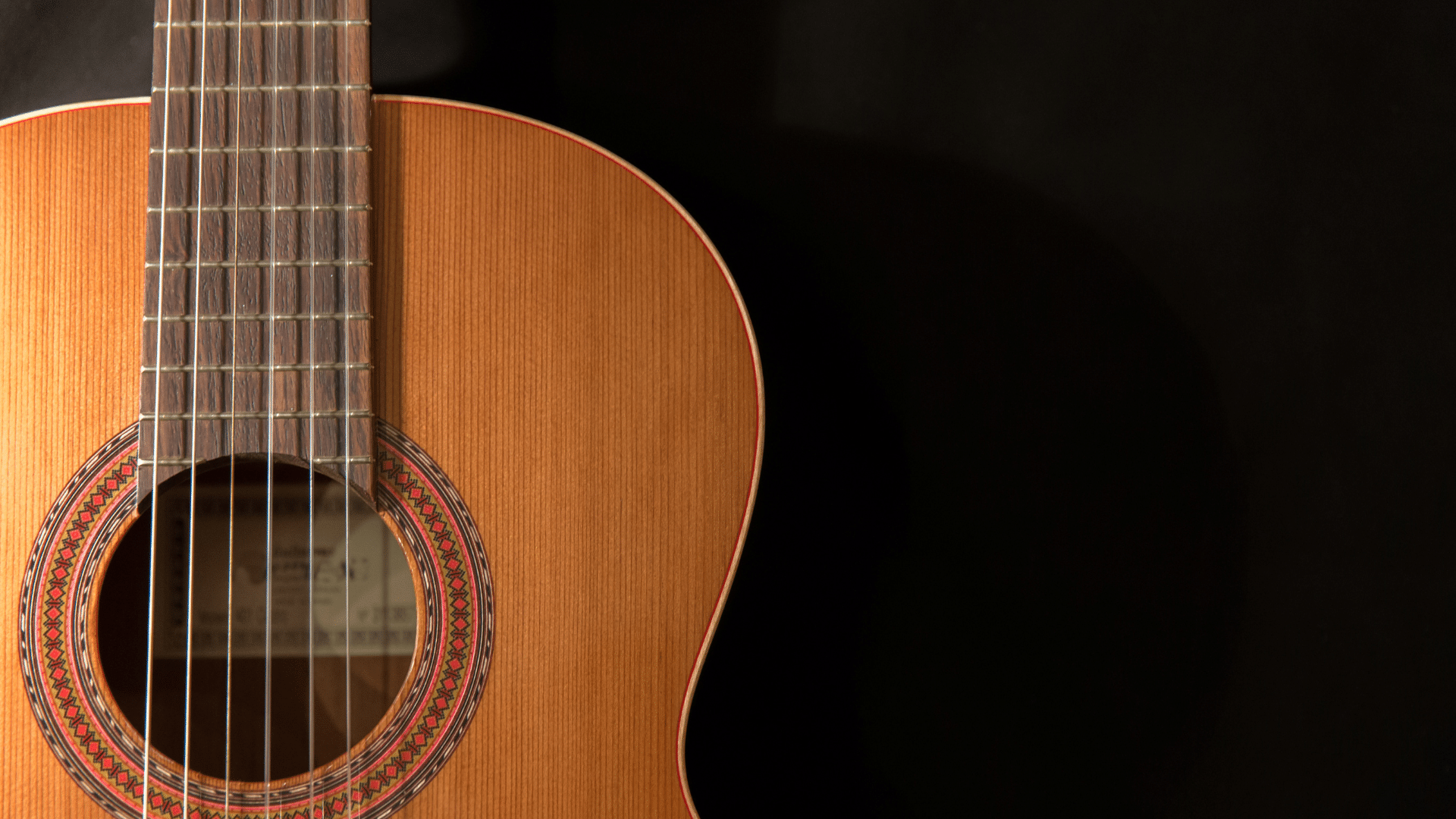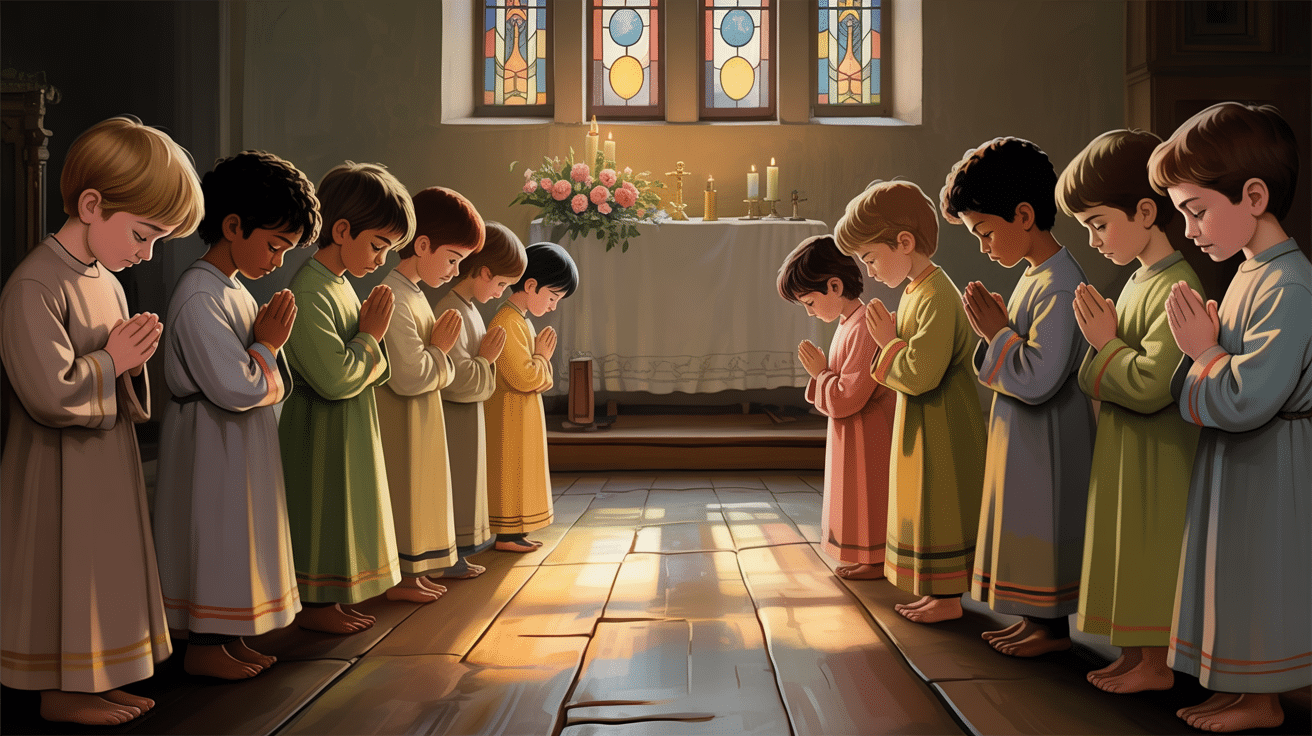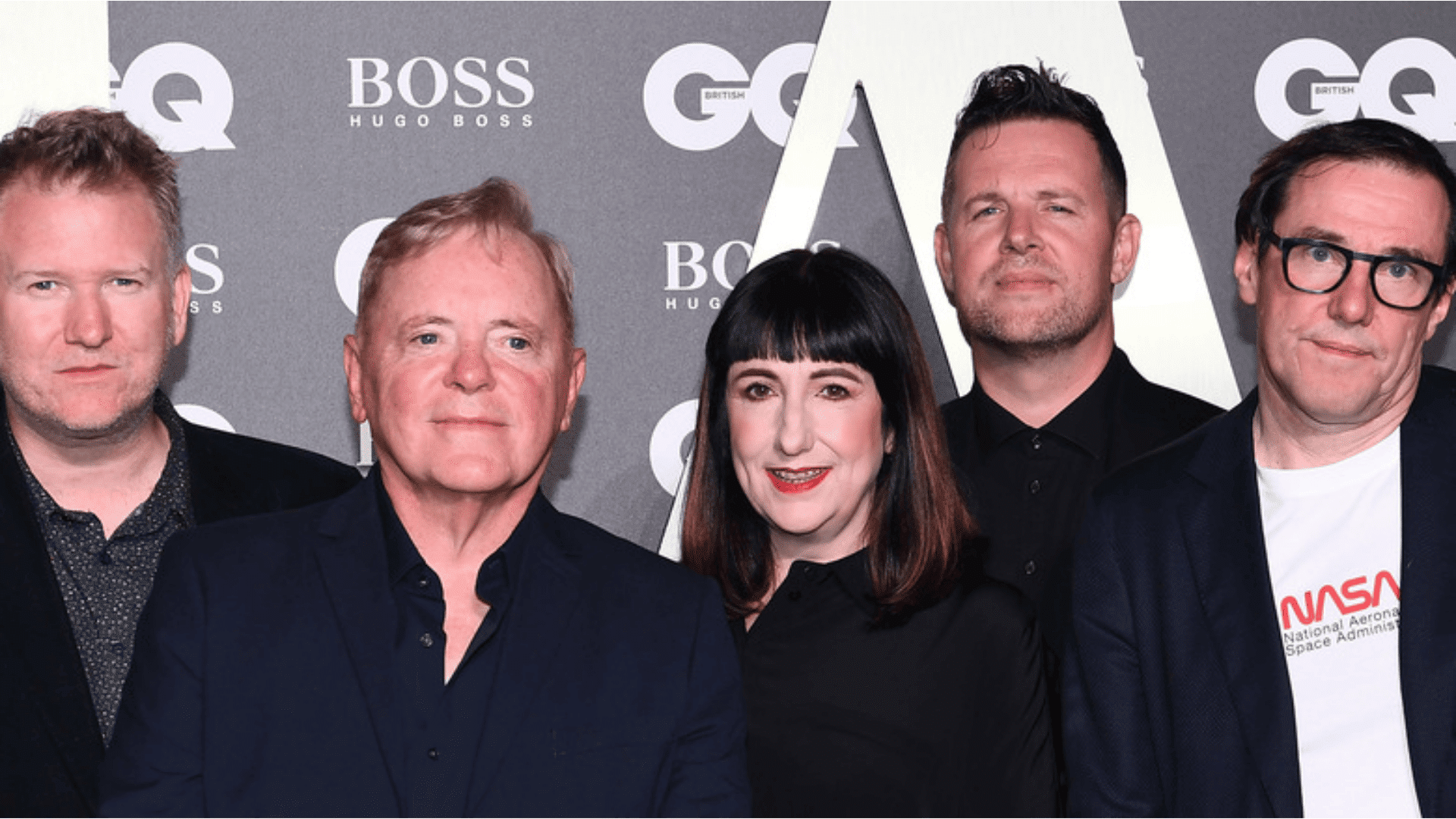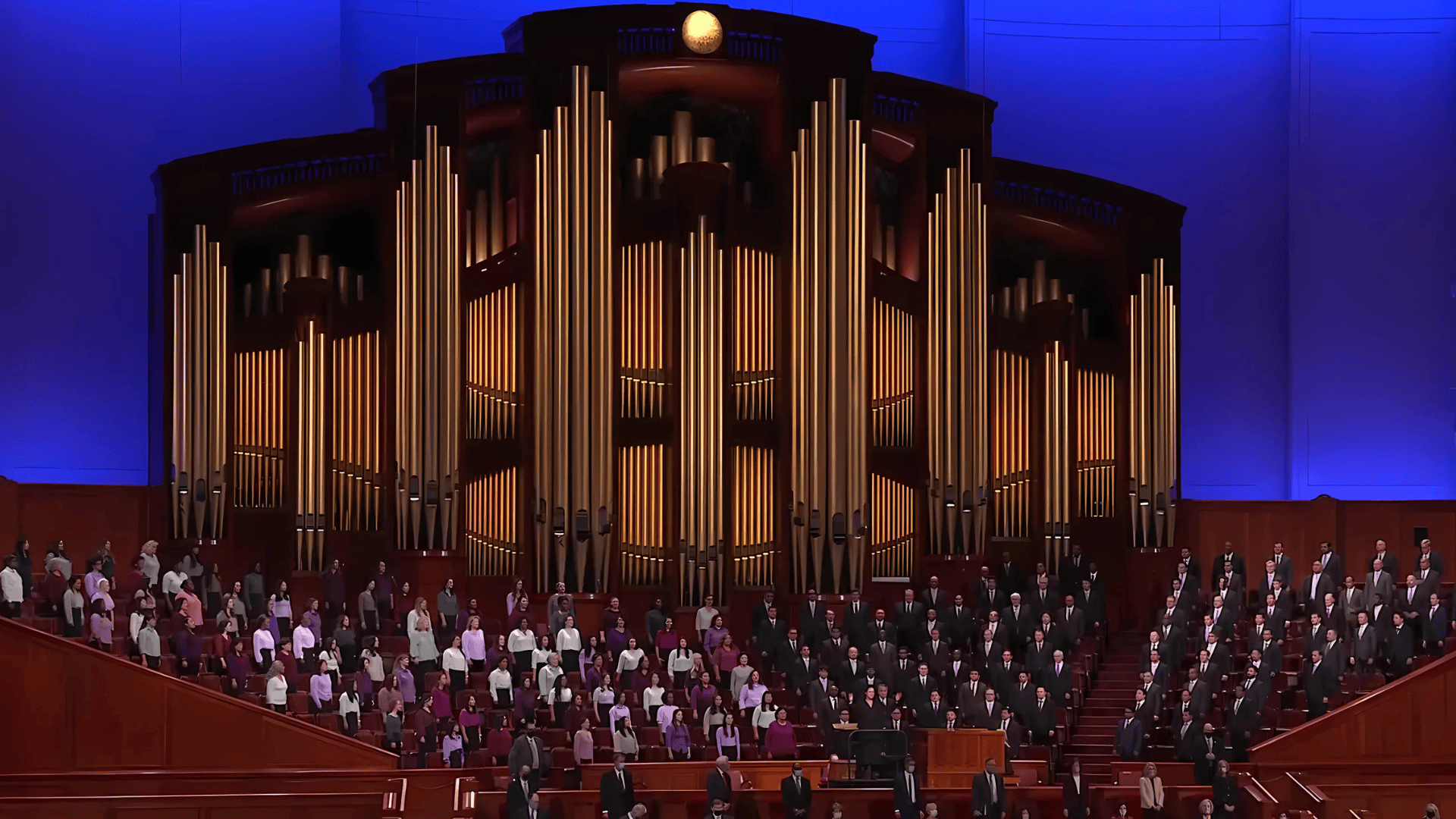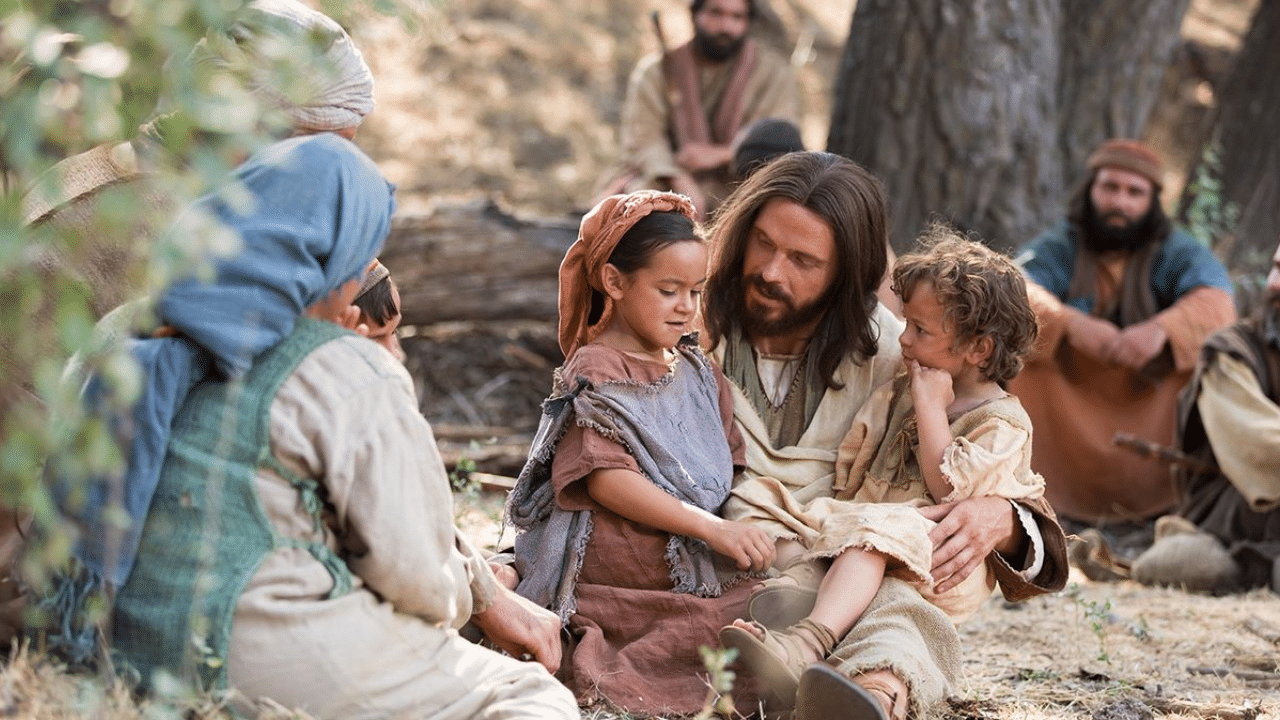Ever wondered who’s really behind your favorite songs? The name in the spotlight isn’t always the creative mind behind those catchy melodies.
When you read album credits, two key roles often appear: songwriters vs composers. While these jobs often overlap in today’s music world, they’re actually different.
This blog explains what songwriters vs composers do, how they differ, where they work together, and what shapes their creative process. You’ll learn about the unique skills each brings and how they combine to create the music you love.
If you’re thinking about music as a career or just want to know how your favorite songs come to life, this guide will make everything clear in simple terms.
From classical pieces to hit singles, we’ll show you who does what behind the scenes.
What is a Songwriter?

A songwriter is a music professional who creates the basic elements of songs. Their main responsibility typically involves writing lyrics and melodies that form the foundation of a musical piece.
Many songwriters craft both elements, while some focus mainly on writing lyrics, with others handling the musical components.
Songwriters work across many genres, but you’ll find them most commonly in pop, country, rock, and folk music. They often write songs for themselves to perform, but many also create music for other artists to record and present to audiences.
The songwriting process varies greatly from person to person. Some writers start with a catchy melody and add words later, while others begin with meaningful lyrics and build the music around them.
Many successful songwriters describe their process as a mix of planned structure and sudden inspiration.
What is a Composer?
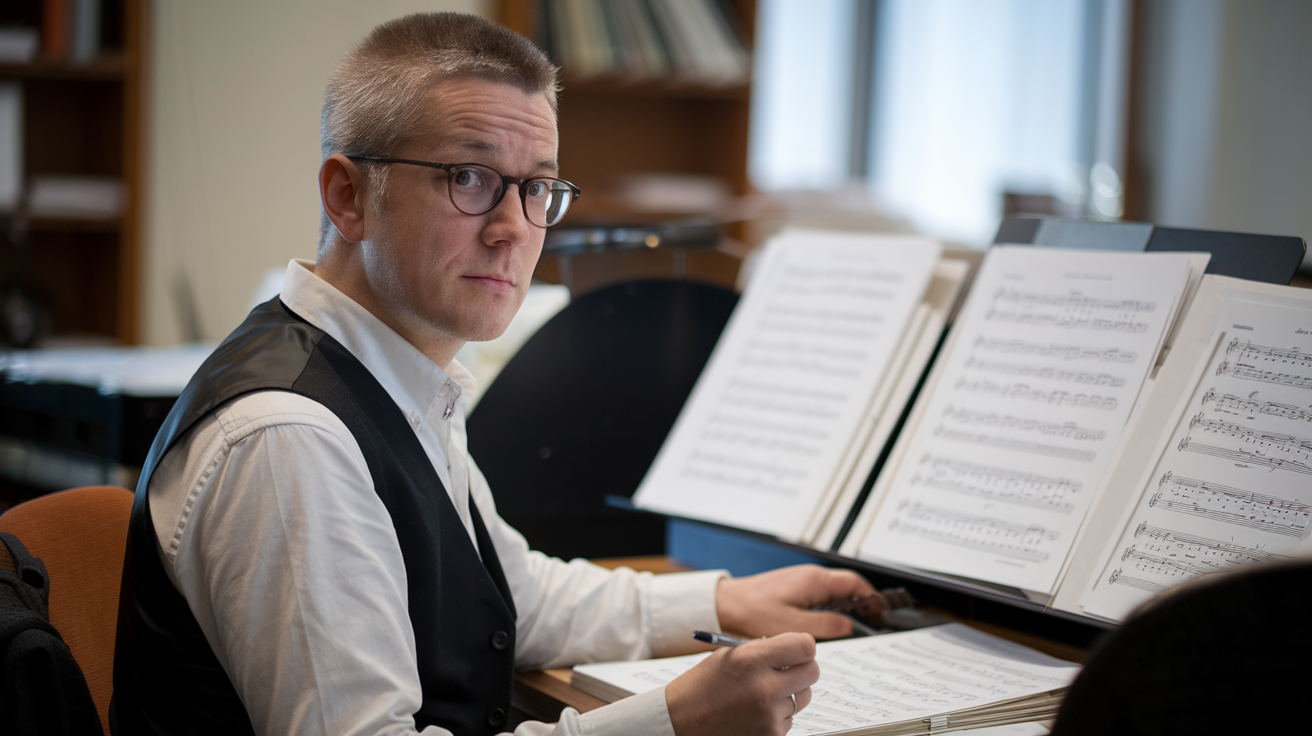
A composer is a music creator who specializes in writing instrumental music or scores.
Unlike songwriters, who often focus on both lyrics and melody, composers primarily create music without words, though some works may include vocal elements.
Composers typically develop more complex musical structures and often write for multiple instruments. They’re commonly connected with classical music, film and television scores, video game soundtracks, and orchestral pieces. Their work requires deep knowledge of musical theory, instrumental capabilities, and sound combinations.
While songwriters might focus on a three-minute song with verses and a chorus, composers often create longer, more intricate pieces with various movements and themes. They use musical notation to communicate their ideas to performers, directing how different instruments should play together to create the complete musical experience.
Do Songwriters and Composers Ever Overlap?
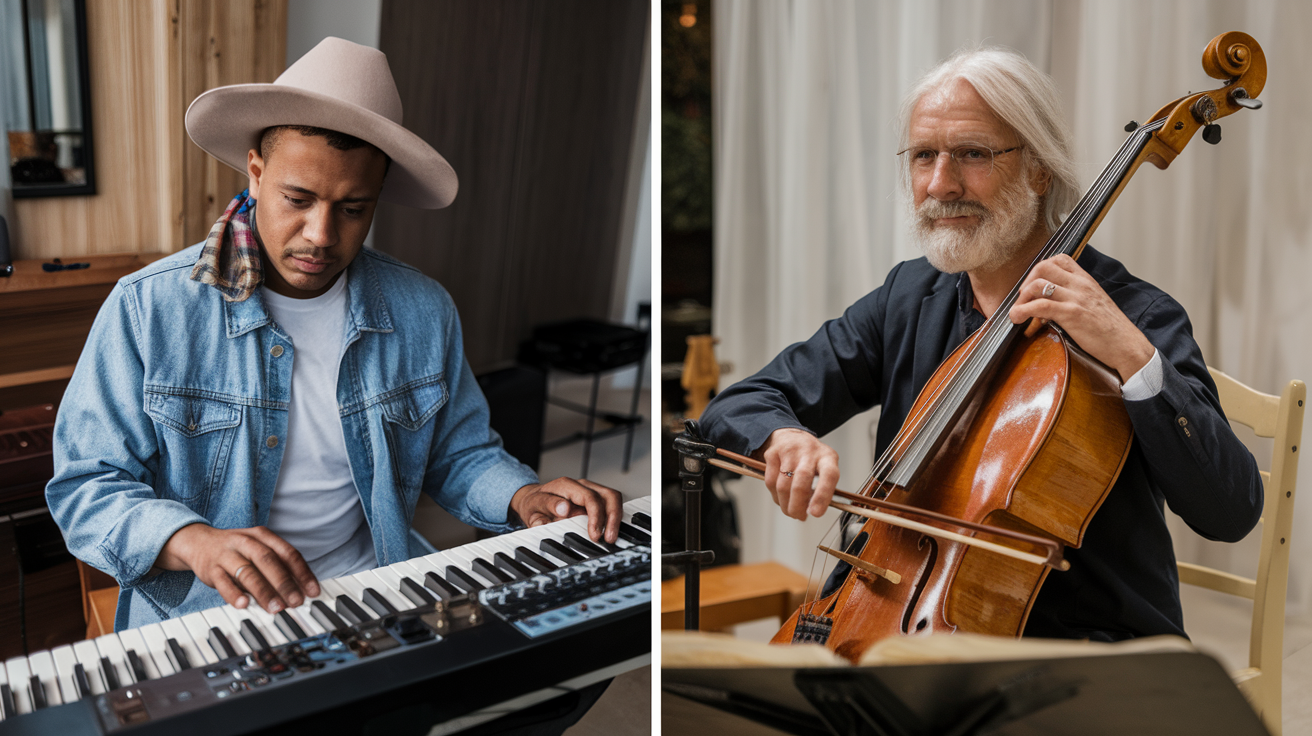
Yes, the line between songwriters and composers often blurs in modern music. Many musical creators move between both roles depending on the project or their personal creative goals.
Consider film music professionals like Hans Zimmer, who primarily composes instrumental scores for movies but occasionally incorporates songs with lyrics. On the other side, artists like Taylor Swift mainly write songs with lyrics but also create instrumental pieces and score elements for their albums.
The growing accessibility of music production technology has also made it easier for creators to experiment with songwriting and composition, regardless of their formal training or background.
Key Differences Between a Songwriter and a Composer

While there’s considerable overlap between these roles, several distinct factors set songwriters and composers apart:
| Pathway Element | Songwriter | Composer |
|---|---|---|
| Musical Training | Often learns by doing, experimenting, or via mentorship | Typically studies music theory, harmony, and arrangement |
| Tools Used | Uses a guitar, piano, or DAW to build melodies and hooks | Relies on notation software, keyboards, and orchestration tools |
| Demo Creation | Makes rough song recordings to share with others | Prepares audio mockups or written scores for review |
| Networking | Connects with artists, producers, and fellow writers | Builds ties with directors, orchestrators, and studios |
| Portfolio Building | Shares demos, lyrics, and co-written tracks | Presents scores, compositions, or soundtracks |
| Industry Entry | Submits to music libraries, plays live, or pitches songs | Gains recognition through film, games, or orchestras |
| Career Growth | May sign with a publisher or work as a freelance writer | Can become a staff composer, freelancer, or arranger |
No matter if you are drawn to writing heartfelt lyrics or crafting sweeping instrumental pieces, both paths offer creative freedom and a chance to shape how the world hears and feels music.
What Types of Music Do They Usually Create?
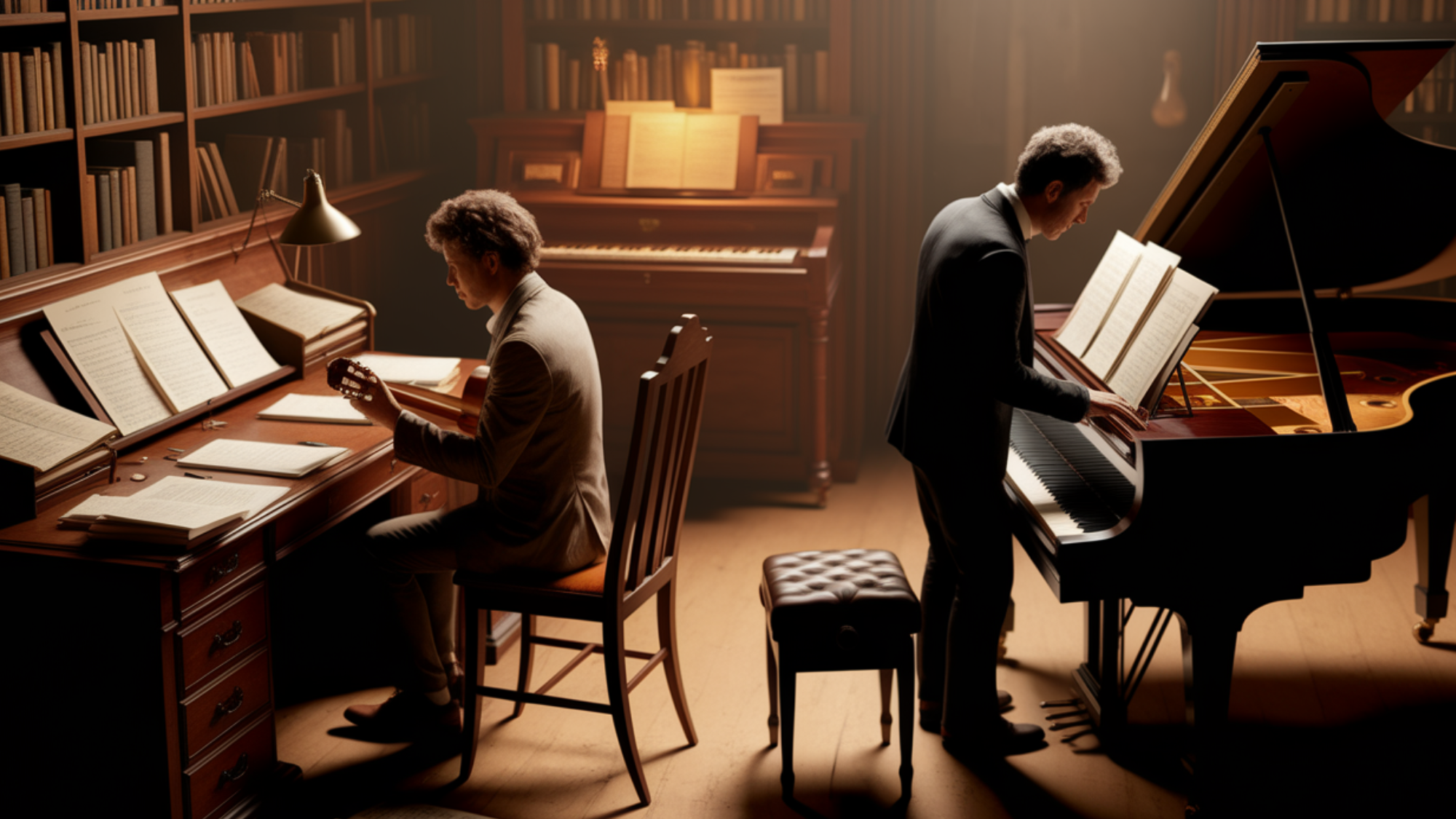
In the debate of Songwriters vs Composers, one key difference lies in the styles of music they specialize in. While both contribute to powerful musical moments, their creative lanes often lead to very different soundscapes.
| Category | Songwriters | Composers |
|---|---|---|
| Main Focus | Commercial music formats (radio, streaming) | Extended musical structures |
| Common Genres | – Pop: Catchy melodies and lyrics – R&B/Soul: Expressive vocals – Country: Story-based songs – Rock/Alternative: Energetic hooks | – Film/TV Scores: Enhancing visual storytelling – Classical: Orchestral, chamber, solo – Video Games: Interactive soundtracks – Theater/Musicals: Stage compositions |
| Famous Figures | Diane Warren, Max Martin | Hans Zimmer, John Williams, Koji Kondo |
| End Goal | Connect emotionally with a broad audience | Build immersive or dramatic musical experiences |
Hans Zimmer (known for “The Lion King” and “Inception”) Hildur Guðnadóttir (who scored “Joker” and “Chernobyl”) exemplify modern composers who build rich sonic environments for visual media.
The principal distinction lies in purpose: songwriters typically aim for standalone musical products, while composers create music that serves a broader artistic context.
Tools of the Trade: How Do They Create Music?
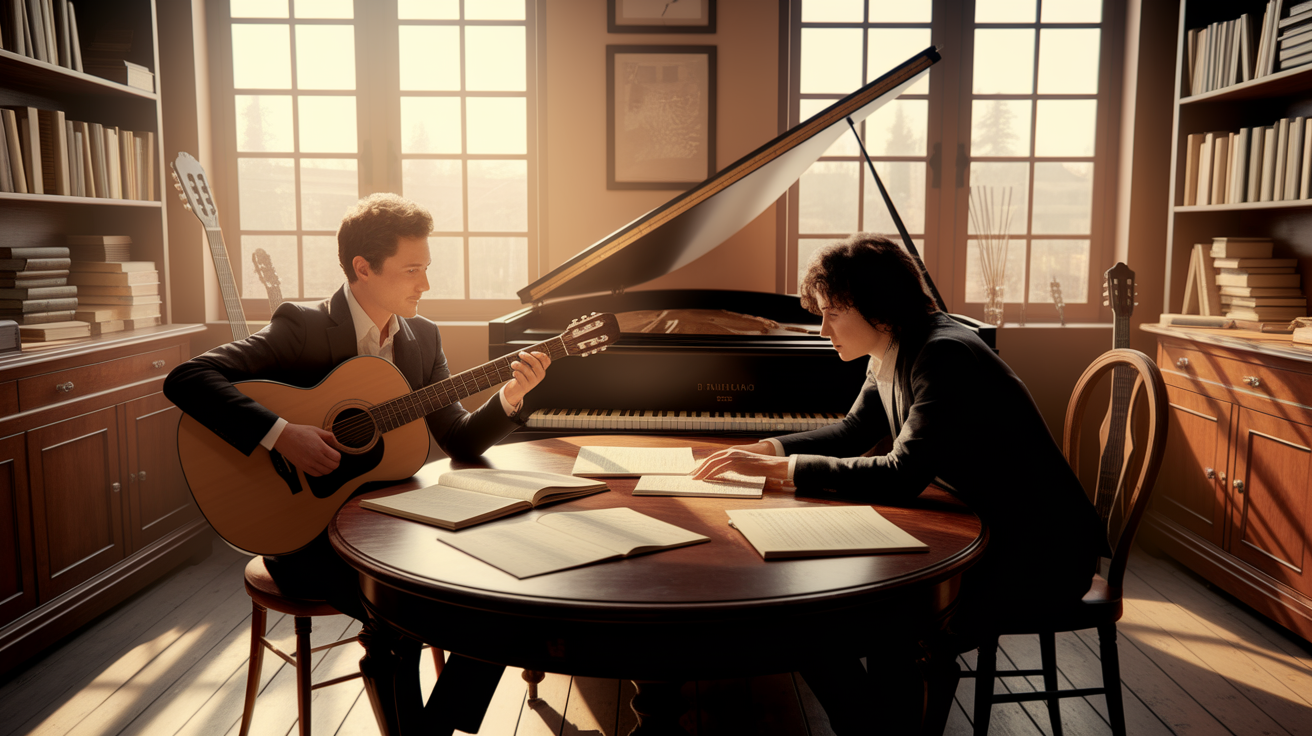
Songwriters: From Simple Instruments to Digital Studios
Songwriters employ a range of tools that help them capture melodies, rhythms, and lyrics:
- Basic instruments: Many songwriters use guitars, pianos, or keyboards as their primary tools for writing
- Digital Audio Workstations (DAWs): Software like Logic Pro, Ableton Live, and FL Studio helps songwriters produce demos
- Voice memos and recording apps: Simple recording tools capture sudden ideas
- Lyric notebooks and apps: Physical or digital spaces to collect words and phrases
- Loop libraries: Pre-made musical patterns that can spark new song ideas
A typical songwriter’s process often begins with a simple chord progression on guitar or piano, followed by melody creation, and then lyric writing, though this order varies by individual preference.
Composers: From Staff Paper to Full Orchestras
Composers rely on more structured tools and methods for creating complex musical pieces:
- Music notation software: Programs like Sibelius, Finale, and Dorico for score creation
- Staff paper: Traditional paper notation for sketching musical ideas
- MIDI keyboards: For inputting notes into composition software
- Sample libraries: Digital recreations of orchestral instruments and sounds
- Orchestration references: Books and guides on how instruments work together
The key distinction lies in scope—songwriters focus on creating relatively short, self-contained pieces, while composers often build broader musical frameworks with multiple interconnected elements.
Who Do They Work With? A Look at Collaboration Styles
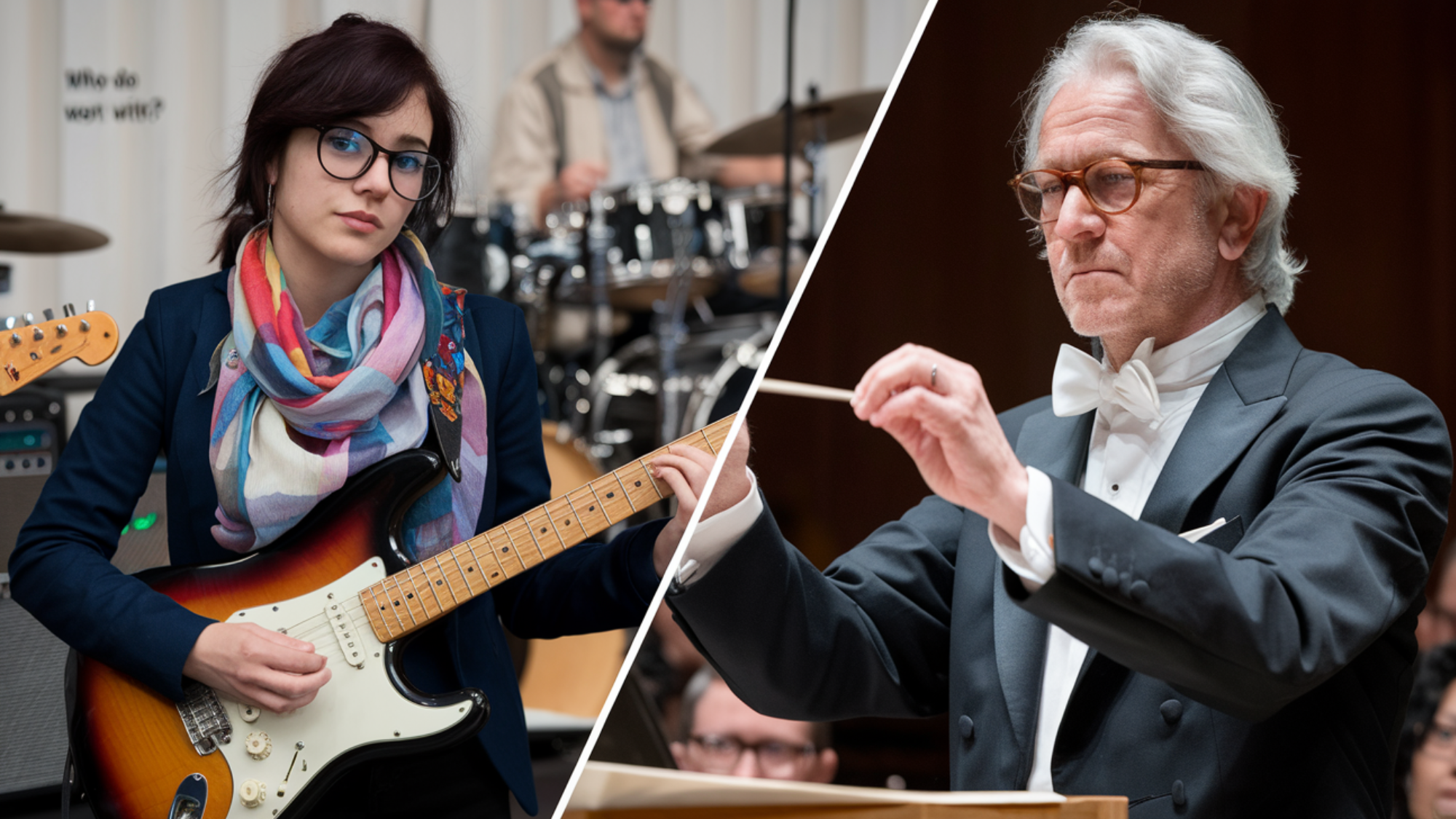
Songwriters: Team Efforts in Commercial Music
Modern songwriters rarely work in isolation. Their collaborations typically include:
- Recording artists: Songwriters often tailor their work for specific performers or co-write with them
- Producers: Music production specialists who help shape the sonic aspects of songs
- Other songwriters: Writing camps and sessions where multiple writers contribute to a single track
- Publishers and A&R representatives: Industry professionals who provide feedback and direction
The Billboard charts show this trend clearly; songs with numerous writers often perform better commercially.
Composers: Specialized Teams for Complex Projects
Composers work with different sets of collaborators focused on bringing larger musical concepts to life:
- Directors and producers: For film and TV work, these relationships guide the musical direction
- Orchestrators: Specialists who expand the composer’s ideas into full orchestral arrangements
- Sound designers: Professionals who blend composed music with sound effects
- Conductors and Performers: Musicians who interpret the composer’s written music
- Music editors: Experts who fit composed music precisely to visual media
Each role helps translate the composer’s vision into a full experience—often for film, games, or live performance.
Famous Songwriters and Composers Who Changed the Game
Behind every unforgettable song or cinematic score is a creative mind that redefined what music could be. These trailblazing songwriters and composers have left a lasting mark on the industry—and the world
Game-Changing Singers
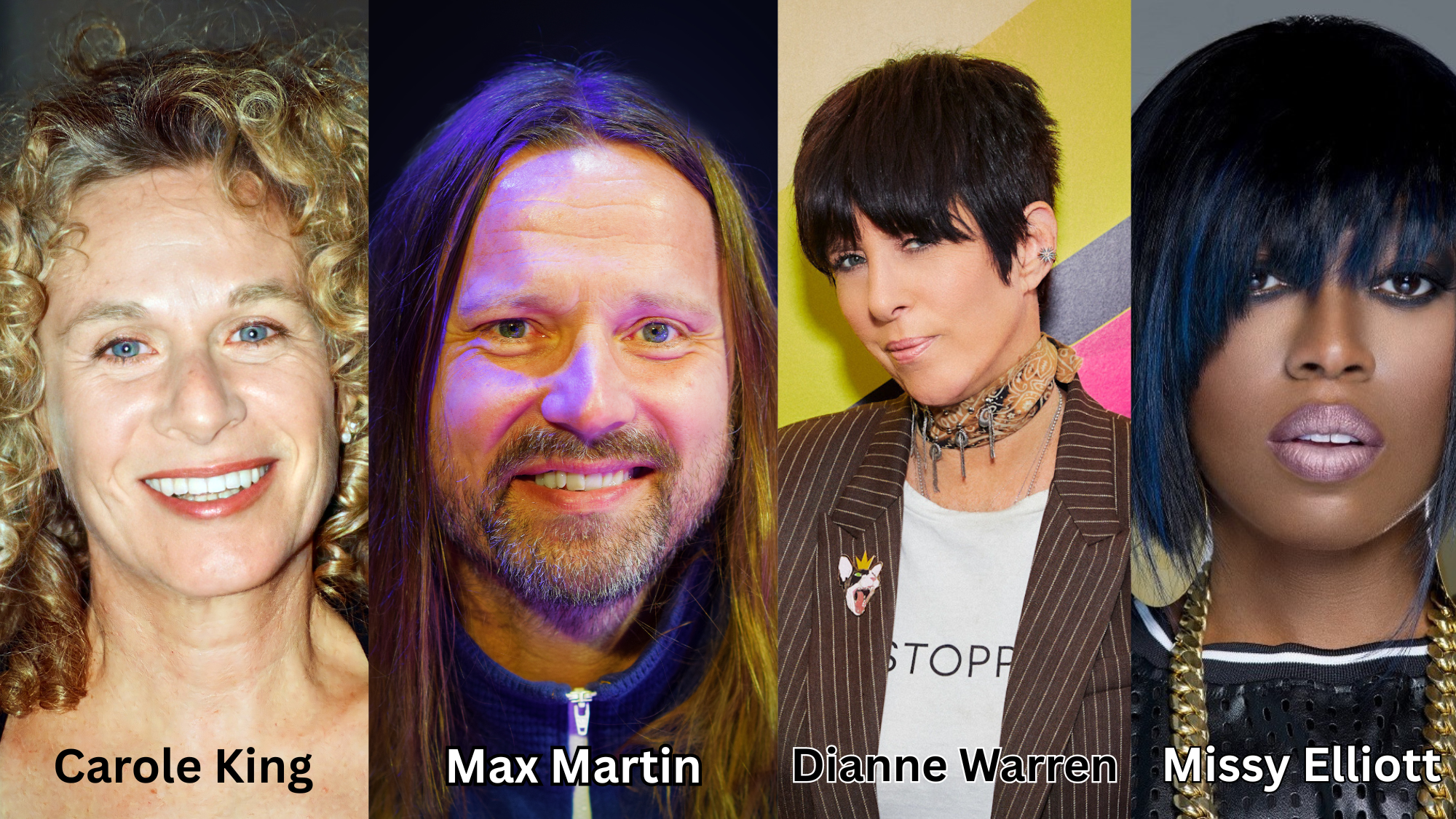
-
Carole King
Carole King began her career writing hits for other artists before becoming a successful performer in her own right.
Her album, “Tapestry,” remains one of the most successful albums of all time, having sold over 25 million copies worldwide.
Famous works: “You’ve Got a Friend,” “It’s Too Late,” and “You Make Me Feel Like A Natural Woman”
-
Max Martin
Max Martin has written or co-written 25 Billboard Hot 100 number-one songs, the third most in history, behind only Paul McCartney and John Lennon.
The Swedish songwriter and producer has worked with nearly every major pop star since the late 1990s, shaping the sound of contemporary music.
Famous works: “Baby One More Time,” “Blank Space,” and “Can’t Feel My Face”
-
Diane Warren
Diane Warren has written songs for artists across multiple genres, including pop, rock, country, and R&B over her four-decade career.
She has been nominated for 13 Academy Awards, making her one of the most-nominated women in Oscar history who has yet to win.
Famous works: “Because You Loved Me,” “I Don’t Want to Miss a Thing,” and “How Do I Live”
-
Missy Elliott
Missy Elliott broke into the music industry as a songwriter and producer before launching her own successful performing career.
She became the first female rapper inducted into the Songwriters Hall of Fame, recognizing her contributions both as a performer and behind-the-scenes creator.
Famous works: “Work It,” “Get Ur Freak On,” and “Lose Control”
Game-Changing Composers
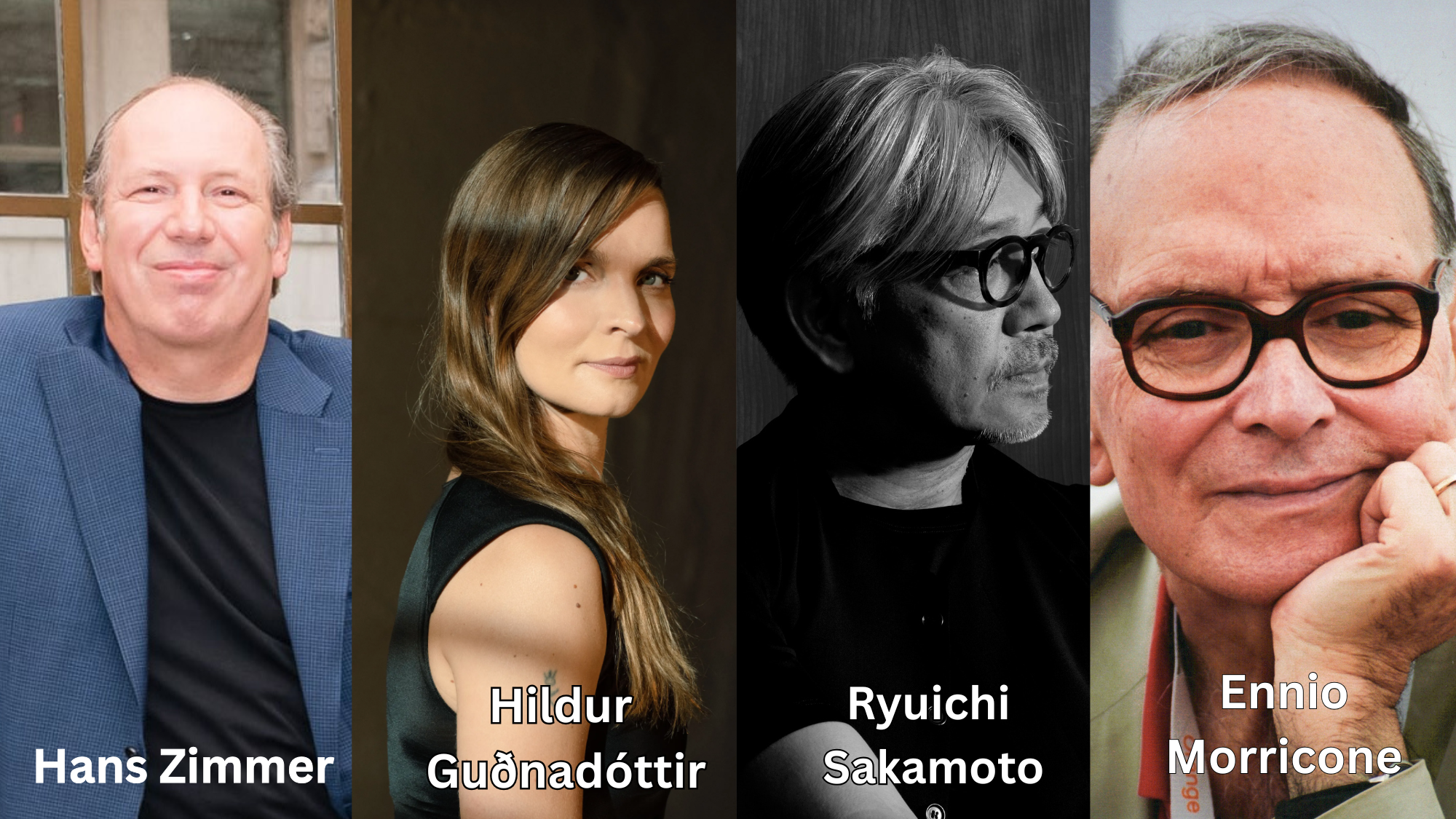
-
Hans Zimmer
Hans Zimmer has composed music for over 150 films, pioneering the integration of electronic music with traditional orchestral arrangements.
The German composer has created some of the most recognizable film scores of the past three decades, collaborating with directors like Christopher Nolan and Ridley Scott.
Famous works: “Time” from Inception, “Now We Are Free” from Gladiator, and the Pirates of the Caribbean theme.
-
Hildur Guðnadóttir
Hildur Guðnadóttir began her career as a cellist before transitioning to composition for film and television.
The Icelandic musician brings a unique background in experimental music to her scoring work, creating textural soundscapes that blur the line between music and sound design.
Famous works: “The Joker” score, the “Chernobyl” soundtrack, and “Sicario: Day of the Soldado.”
-
Ryuichi Sakamoto
Ryuichi Sakamoto was a Japanese composer who moved effortlessly between classical composition, electronic music, and film scoring throughout his career.
He was also a member of the influential electronic music group Yellow Magic Orchestra before establishing himself as a respected solo artist and composer.
Famous works: “Merry Christmas, Mr. Lawrence,” the score for “The Revenant,” and the soundtrack for “The Last Emperor”.
-
Ennio Morricone
Ennio Morricone composed over 400 scores for cinema and television and sold over 70 million records during his lengthy career.
The Italian composer revolutionized the sound of Western films, then brought his distinctive style to virtually every film genre.
Famous works: “The Ecstasy of Gold,” “Chi Mai,” and “Gabriel’s Oboe” from The Mission
Conclusion: Which Path Inspires You More?
Songwriters and composers both shape our experience of music, albeit in different ways. While songwriters often focus on short-form, lyric-driven pieces, composers build expansive soundscapes to support visual or emotional narratives.
Today, it’s not uncommon for creators to wear both hats, experimenting freely thanks to technological advancements and shifting industry norms.
No matter if you are more drawn to crafting melodies and words or designing entire musical worlds, there’s space for your voice in music.
So, are you a lyric lover or an orchestral dreamer? Share your thoughts below and join the conversation.
If you’re curious about the differences between a songwriter and a composer, you might also find our blog on Producer or Composer: Who Really Creates the Music? Insightful, as it further explores the roles of various music creators in the production process.
Frequently Asked Questions
Can Someone be Both a Songwriter and a Composer Simultaneously?
Yes, many music professionals work in both roles depending on the project. This flexibility enables creative individuals to express themselves across various music formats.
Do Songwriters Need Formal Music Education Compared to Composers?
Not necessarily. While composers often have formal training, many successful songwriters are self-taught or learn through mentorship and practical experience.
How do Royalties Differ Between Songwriters and Composers?
Songwriters typically earn from radio play, streaming, and cover versions, while composers often receive upfront payments for commissioned work, as well as backend royalties from media use.
Is One Role More Financially Stable than The Other?
Composers often work on a contract basis with more predictable income, while songwriters may experience more income variation based on song performance.



